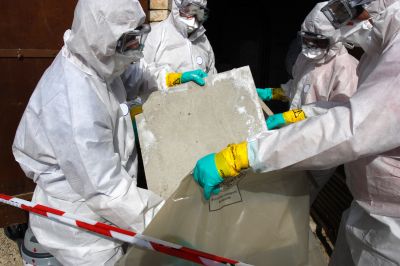Leading Products For Asbestos Inspection Professionals
Find out which tools are favored by industry experts for precise asbestos detection and safe remediation planning.
 When considering products for asbestos inspections, it is essential to focus on tools and equipment that facilitate accurate detection and safe handling. Asbestos inspection products range from specialized sampling kits to advanced detection devices, each designed to assist homeowners, contractors, and inspectors in identifying potential asbestos-containing materials. Proper inspection tools can help ensure that any asbestos presence is identified early, enabling appropriate remediation measures to be taken. The selection of the right products depends on the specific needs of the inspection, the environment, and the level of detail required.
When considering products for asbestos inspections, it is essential to focus on tools and equipment that facilitate accurate detection and safe handling. Asbestos inspection products range from specialized sampling kits to advanced detection devices, each designed to assist homeowners, contractors, and inspectors in identifying potential asbestos-containing materials. Proper inspection tools can help ensure that any asbestos presence is identified early, enabling appropriate remediation measures to be taken. The selection of the right products depends on the specific needs of the inspection, the environment, and the level of detail required.
Top Overall Option
Asbestos Sampling Kit
An asbestos sampling kit provides a comprehensive set of tools for collecting material samples safely and effectively. These kits typically include sample containers, protective gear, and detailed instructions to ensure proper collection procedures. They are suitable for both professional inspectors and homeowners seeking to identify potential asbestos hazards. Using a sampling kit in conjunction with laboratory analysis can help provide clarity on the presence of asbestos and inform necessary steps for remediation.
Types of Products For Asbestos Inspections
Asbestos Sampling Kits
Complete kits for collecting material samples safely for laboratory testing.
Portable Asbestos Detectors
Handheld devices designed to provide immediate detection of asbestos fibers on-site.
Microscopic Analysis Equipment
Tools such as polarized light microscopes for detailed material examination.
Personal Protective Equipment
Protective gear including masks, gloves, and coveralls for safe inspection.
Air Sampling Pumps
Devices used to collect air samples for laboratory analysis of airborne asbestos fibers.
Infrared and X-ray Inspection Devices
Advanced imaging tools for non-destructive assessment of materials.
Chemical Test Kits
Test kits that detect asbestos presence through chemical reactions.
Inspection Guides and Manuals
Educational resources to assist in proper inspection procedures.
Surface Swab Test Kits
Tools for collecting surface samples for laboratory testing.
Vacuum Sampling Equipment
Specialized vacuums designed to collect airborne fibers for analysis.
Popular Choices
Widely used for initial sample collection and laboratory submission.
Trending for quick on-site detection in various environments.
Commonly selected for assessing airborne asbestos levels.
Essential for safe inspection practices and frequently purchased.
Popular among professionals for detailed material examination.
Frequently used for surface testing in suspected areas.
Gaining popularity for non-invasive material assessment.
Trending for quick chemical-based detection results.
Popular educational resources for proper inspection procedures.
A comprehensive approach to asbestos inspection often involves multiple types of products working together. Sampling kits, for example, allow for the collection of material samples that can be analyzed by certified laboratories. Portable detection devices, such as handheld analyzers, provide immediate insights and can be used on-site to identify suspect materials. Personal protective equipment is also vital for safety, ensuring that inspectors can work securely while minimizing exposure risks. Additionally, documentation tools and guides can assist in recording findings accurately and following proper procedures.
Given the health risks associated with asbestos exposure, it is crucial to use products that are reliable and compliant with safety standards. While some tools offer visual inspection capabilities, others focus on chemical analysis or microscopic examination. Combining these products can lead to a more thorough assessment and help prevent potential health hazards. It is recommended to choose products from reputable sources and ensure they meet industry guidelines to support effective and safe inspections. Proper training and understanding of each product's capabilities are equally important for achieving accurate results.
Key Buying Considerations
- Certification and compliance with safety standards
- Type of inspection required (visual, sampling, chemical analysis)
- Ease of use and clarity of instructions
- Safety features and protective gear included
- Compatibility with laboratory analysis procedures
- Portability and convenience for on-site use
- Durability and quality of materials
- Cost and availability of replacement parts or consumables
- Accuracy and reliability of detection methods
- Training requirements for effective use
- Compatibility with existing equipment or tools
- Customer reviews and reputation of the manufacturer
- Support and guidance resources provided
- Environmental conditions where products will be used
- Frequency of use and scalability of the products
This page contains affiliate links. We may earn a commission from qualifying purchases to support our content.
